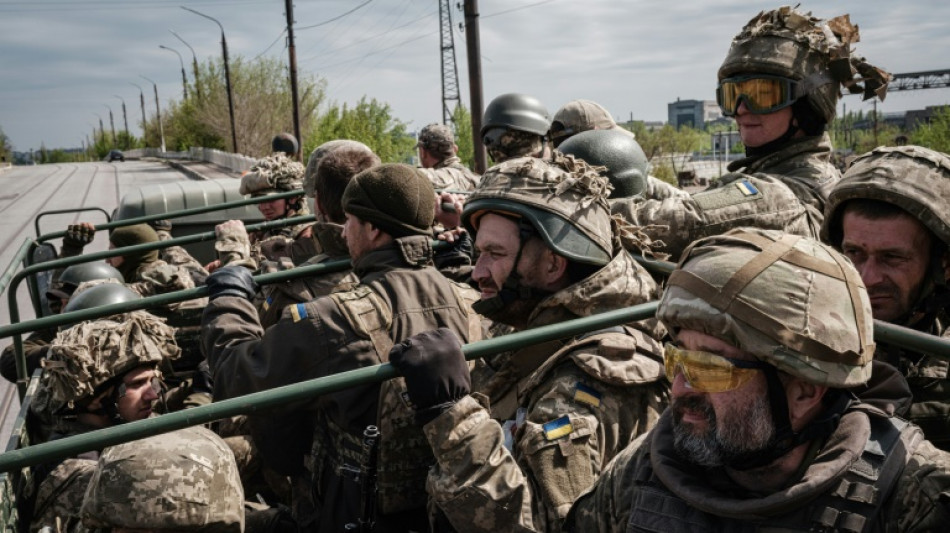
-
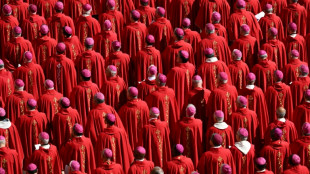 Crowds flock to tomb of Pope Francis, as eyes turn to conclave
Crowds flock to tomb of Pope Francis, as eyes turn to conclave
-
Inter downed by Roma, AC Milan bounce back with victory in Venice
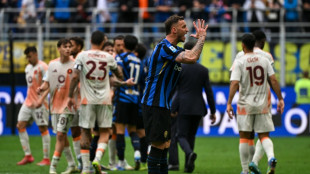
-
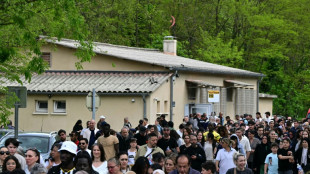 Religious hate has no place in France, says Macron after Muslim killed in mosque
Religious hate has no place in France, says Macron after Muslim killed in mosque
-
Last day of Canada election campaign jolted by Vancouver attack
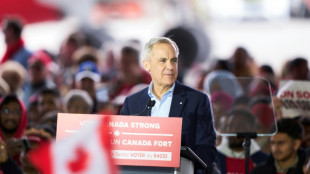
-
 Barcelona crush Chelsea to reach women's Champions League final
Barcelona crush Chelsea to reach women's Champions League final
-
Nine killed as driver plows into Filipino festival in Canada
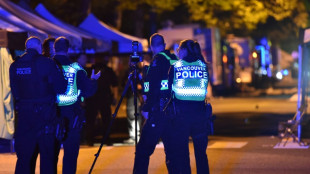
-
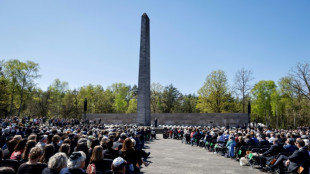 Germany marks liberation of Bergen-Belsen Nazi camp
Germany marks liberation of Bergen-Belsen Nazi camp
-
Hojlund strikes at the death to rescue Man Utd in Bournemouth draw
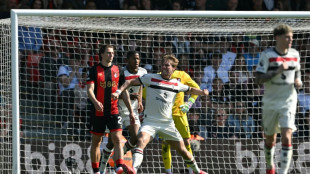
-
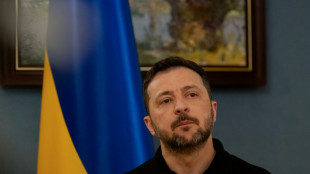 Zelensky says Ukraine not kicked out of Russia's Kursk
Zelensky says Ukraine not kicked out of Russia's Kursk
-
Zverev, Sabalenka battle through in Madrid Open, Rublev defence over
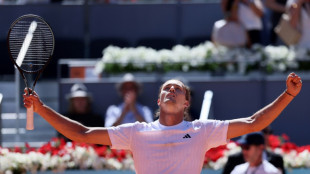
-
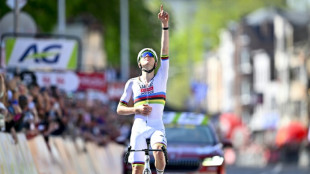 Ruthless Pogacar wins Liege-Bastogne-Liege for third time
Ruthless Pogacar wins Liege-Bastogne-Liege for third time
-
Bumrah claims 4-22 as Mumbai register five straight IPL wins
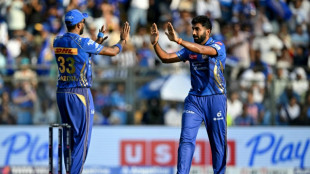
-
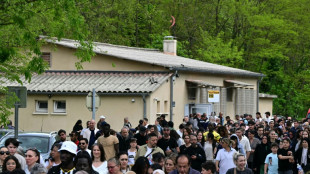 No place for racism, hate in France, says Macron after Muslim killed in mosque
No place for racism, hate in France, says Macron after Muslim killed in mosque
-
Greenland leader says Trump's threats disrespectful
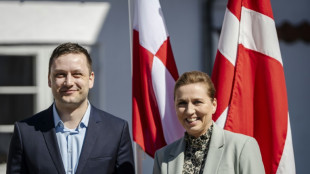
-
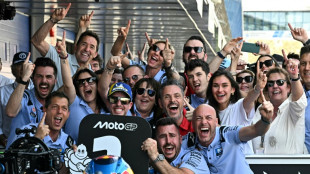 Spain's Alex Marquez celebrates maiden MotoGP in home Grand Prix
Spain's Alex Marquez celebrates maiden MotoGP in home Grand Prix
-
Iran's president visits site of port blast that killed 28
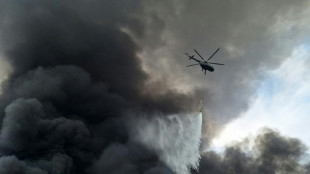
-
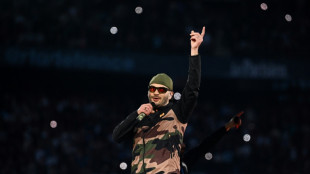 French rapper Jul breaks attendance record at national stadium
French rapper Jul breaks attendance record at national stadium
-
Gaza ministry says hundreds of war missing confirmed dead, toll at 52,243
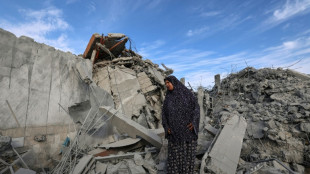
-
 Crowds flock to Pope Francis tomb, as eyes turn to conclave
Crowds flock to Pope Francis tomb, as eyes turn to conclave
-
'Godfather' director Coppola bags lifetime achievement award

-
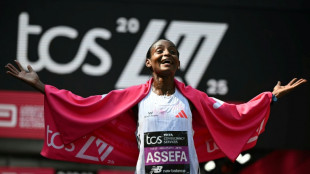 Assefa sets world record, Sawe destroys high class field in London marathon
Assefa sets world record, Sawe destroys high class field in London marathon
-
'No excuse': Real Madrid's Rudiger after throwing object at ref
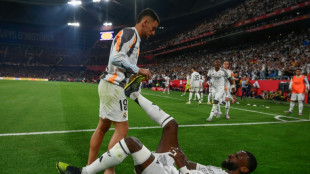
-
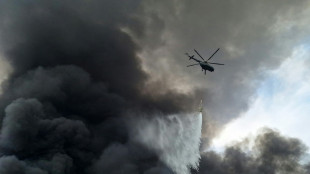 Fire blazes day after Iran port blast killed 28, injured 1,000
Fire blazes day after Iran port blast killed 28, injured 1,000
-
Real Madrid meltdown after third Clasico defeat inevitable end to ugly weekend
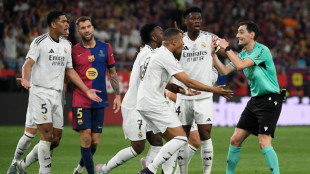
-
 Nine killed as driver plows into Vancouver festival crowd
Nine killed as driver plows into Vancouver festival crowd
-
Crumbs! Should French bakeries open on May 1?

-
 All eyes turn to conclave as Pope Francis tomb opens to public
All eyes turn to conclave as Pope Francis tomb opens to public
-
Emotional Penge bounces back from betting ban for first DP Tour win
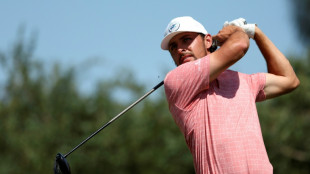
-
 25 killed, 1,000 injured in huge Iran port blast
25 killed, 1,000 injured in huge Iran port blast
-
Greenland PM visits Denmark as Trump threats loom
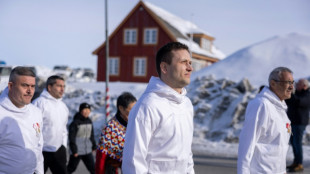
-
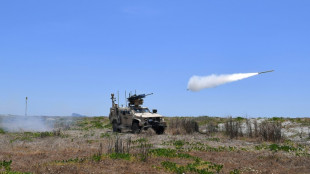 Philippines, US test air defences as China seizes reef
Philippines, US test air defences as China seizes reef
-
25 killed, fires still burning in huge Iran port blast

-
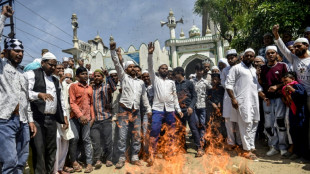 India and Pakistan troops exchange fire in Kashmir
India and Pakistan troops exchange fire in Kashmir
-
Eighteen killed, fires still burning in huge Iran port blast
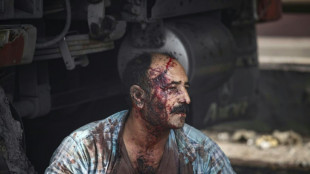
-
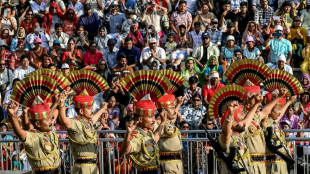 No handshake at muted India-Pakistan border ceremony
No handshake at muted India-Pakistan border ceremony
-
Maligned by Trump, White House reporters hold subdued annual gala

-
 Austria trials DNA testing to uncover honey fraud
Austria trials DNA testing to uncover honey fraud
-
Trump trade war pushes firms to consider stockpiling
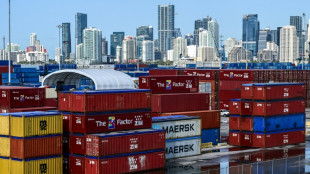
-
 D'Backs' Suarez becomes 19th MLB player to hit four homers in one game
D'Backs' Suarez becomes 19th MLB player to hit four homers in one game
-
Continuity or rupture: what direction for the next pope?

-
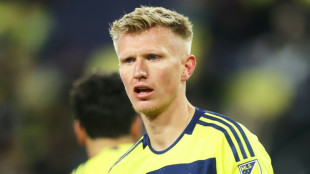 Surridge scores four as Nashville smash seven past Chicago
Surridge scores four as Nashville smash seven past Chicago
-
Chinese tea hub branches into coffee as tastes change
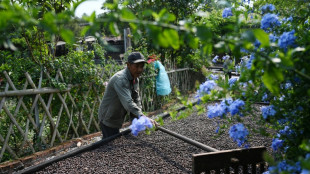
-
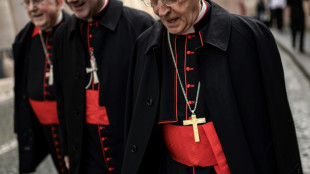 Diplomacy likely to trump geography in choice of new pope
Diplomacy likely to trump geography in choice of new pope
-
All eyes turn to conclave after Pope Francis's funeral
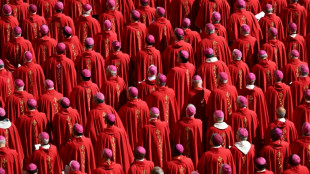
-
 Doves, deaths and rations: Papal elections over time
Doves, deaths and rations: Papal elections over time
-
Progressive Canadians say social issues blown off election agenda

-
 Liverpool primed for Premier League title party
Liverpool primed for Premier League title party
-
Buenos Aires bids farewell to Francis with tears, calls to action
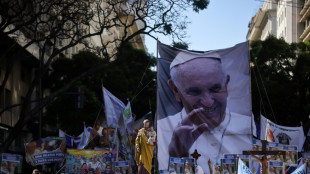
-
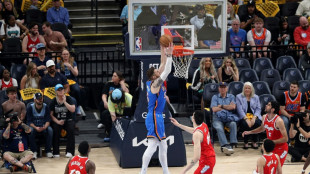 Thunder sweep past Grizzlies in NBA playoffs, Cavs on brink
Thunder sweep past Grizzlies in NBA playoffs, Cavs on brink
-
Major blast at Iran port kills 14, injures 750
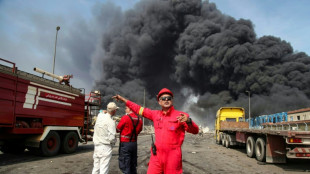

Exhausted Ukrainian soldiers return from eastern front
Packed with exhausted Ukrainian soldiers with clenched jaws, the truck drives away at full speed. The troops from the 81st brigade have just received an order to withdraw from the eastern front where Russian forces advance.
The brigade walked 12 kilometres (7.5 miles) Saturday, camouflaged in the woods and under crossfire, until their point of retreat at Sviatoguirsk.
For a month, the 81st -- whose motto is "always first" -- battled to push back the Russian advance in Ukraine's eastern Donbas region where Moscow's troops move forward slowly, taking villages one by one.
"Everyone understands that we must guard the line here, we cannot let the enemy move closer, we try to hold it with all our force," says lieutenant Yevgen Samoylov, anxious that the unit could be hit by Russian fire at any point.
"As you can hear, the enemy is very, very near," he says, pointing to the sky. The line of Russian tanks is on the other side of a hill, around seven kilometres (4.3 miles) away.
At 21 years old, Samoylov, an officer from the Odessa military academy, finds himself managing 130 conscripts, often twice his age.
"It's my first war. I was supposed to graduate in four months, but they sent me here," says the baby-faced officer with a short black beard.
Samoylov, who goes by the nom de guerre "Samson", never leaves his red notebook alone. He takes notes of every movement, but also each request and remark by the soldiers whom he always addresses with a soft voice.
- Deadly silence -
The unit swung into action on February 23, a day before Russia launched the invasion.
At the start of the war, they spent a month defending Izium, which fell on April 1, before joining the fighting around the village of Oleksandrivka.
"Some really difficult battles," says the quiet Samoylov.
In this brigade, like the others, they don't say how many people have been killed.
When the subject comes up, Samoylov's gaze becomes misty. The pain is raw.
A deadly silence takes over the military truck during the drive to the abandoned building where the soldiers will stay during their week of rest.
When the convoy passes a truck loaded with long-range missiles dashing to the front, the soldiers automatically make a "V" sign for victory with their fingers before fixing their gaze once more on their feet or the horizon in silence.
On arrival at the base, the soldiers unload their weapons, remove their kit and immediately go into one of the dilapidated rooms without electricity where they undergo a medical examination after returning from the front.
For the survivors, "there are small injuries on the forehead, those who were buried under the rubble during a bombing have fractures and (injuries) linked to shrapnel," says Vadym Kyrylov, the brigade's doctor.
"But we mainly see somatic problems, like hypertension or chronic illnesses that have worsened," the 25-year-old adds.
- 'Trench foot' -
The men also greatly suffer from "trench foot" syndrome caused by prolonged exposure to moisture, unsanitary conditions or the cold.
"For a month they are not able to dry their shoes... so there are many feet-related injuries, mainly fungi and infections," the doctor says.
After the medical visit, they all have the same reflex: to isolate and use their phone to call a female partner, a child or a parent.
Soldiers cannot use their phones on the front, and any application that requires geolocation is banned.
Four soldiers reassemble the rusty metal bed frames and sweep the floor coated with dust to make a semblance of a room.
"It's the moment for the guys to relax, to take care of their physical and psychological injuries, to regain their strength before returning to battle," Samoylov says.
"They'll sleep warm, eat normal food and try to more or less get back on their feet."
C.Garcia--AMWN